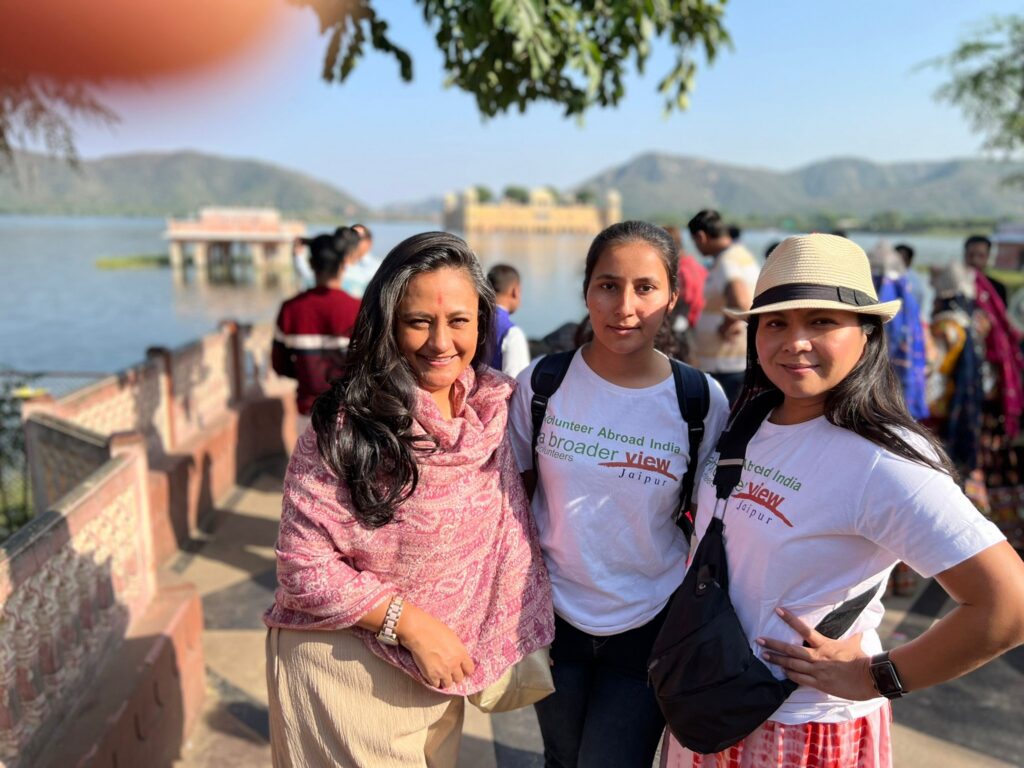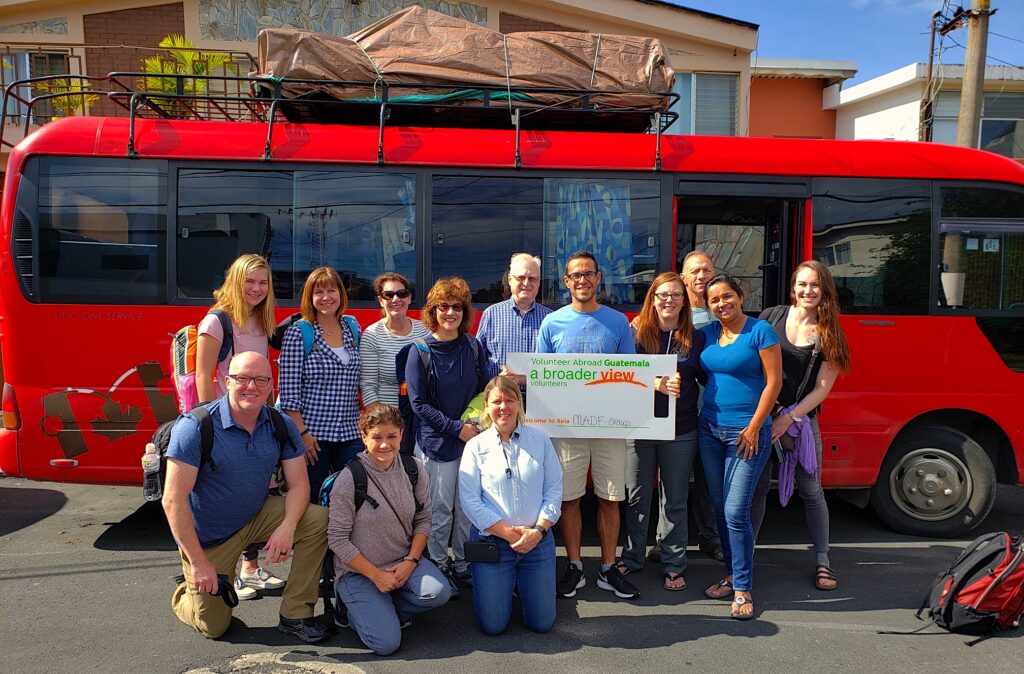Hey there! Are you interested in making a difference in the lives of others while exploring new cultures and environments? Volunteering abroad can be a truly rewarding experience, and one of the most impactful ways to contribute is through teaching programs.
Teaching programs allow you to share your knowledge and skills with communities in need while immersing yourself in a new country. Whether you have a passion for teaching English, want to work with special needs students, or have expertise in a specific subject, there are plenty of opportunities to make a meaningful impact.
In this article, we’ll explore 10 rewarding teaching programs that you can volunteer for abroad. From teaching English as a second language to offering arts and music classes, you’ll find a program that aligns with your interests and skills. So, let’s dive in and discover how you can make a difference through teaching!

1. Teaching English as a Second Language (ESL)
Teaching English as a Second Language (ESL) is one of the most popular and in-demand teaching programs to volunteer abroad. As English continues to be the global language of communication, there is a growing need for individuals who can effectively teach English to non-native speakers.
If you have a passion for language and culture, and enjoy interacting with people from diverse backgrounds, volunteering to teach ESL abroad can be a rewarding experience. Here are some key points to consider:
Benefits of Teaching ESL Abroad:
- Opportunity to make a positive impact in the lives of others by helping them gain a valuable skill.
- Chance to immerse yourself in a different culture and learn firsthand about the traditions and customs of the local community.
- Enhance your own teaching skills and gain valuable experience working with students of different proficiency levels.
- Develop cross-cultural communication skills and increase your global perspective.
- Build relationships with students and fellow volunteers, creating lasting connections and friendships.
Requirements to Teach ESL Abroad:
- Fluency in English: To teach English effectively, it’s important to have a strong command of the language.
- Qualifications: While a formal teaching qualification (such as a TEFL or TESOL certification) is not always required, it can greatly enhance your chances of finding a teaching placement abroad.
- Flexibility and Adaptability: Teaching ESL abroad often involves working with limited resources and in different educational settings. Being adaptable and open to new teaching methods is essential.
- Cultural Sensitivity: It’s important to respect and understand the cultural norms and customs of the community you will be teaching in.
Popular Destinations for Teaching ESL Abroad:
- Thailand: With its beautiful landscapes and rich cultural heritage, Thailand is a popular destination for teaching ESL. Programs in Thailand often provide a mix of classroom teaching and cultural activities.
- Costa Rica: Known for its biodiversity and friendly locals, Costa Rica offers opportunities to teach English in schools, language institutes, and community centers.
- Vietnam: Vietnam’s growing economy has increased the demand for English language skills. Teaching placements in Vietnam can range from rural areas to bustling cities like Hanoi and Ho Chi Minh City.
Costs and Logistics:
- Most teaching programs abroad require volunteers to pay a fee to cover accommodation, meals, and support services. These fees can vary depending on the location and program duration.
- Some programs may offer accommodations with host families, while others provide shared volunteer housing or dormitory-style accommodations.
- It’s important to research and choose a reputable organization or program that aligns with your goals and values.

Teaching English as a Second Language abroad allows you to make a meaningful impact while immersing yourself in a new culture, expanding your teaching skills, and developing lifelong connections. Whether you choose to volunteer for a few weeks or several months, this teaching program offers an enriching experience that will leave a lasting impression.
2. Teaching in Primary Schools
Teaching in primary schools is a rewarding and impactful way to volunteer abroad. As a primary school teacher, you will have the opportunity to shape the minds of young children and lay the foundation for their future success. Here are some important things to know about teaching in primary schools as a volunteer:
Why Teach in Primary Schools?
Teaching in primary schools allows you to make a lasting impact on children’s lives at a crucial stage of their development. Here are some reasons why volunteering in primary schools can be such a rewarding experience:
- Helping Children Learn: By volunteering in primary schools, you can play a vital role in helping children develop essential skills such as reading, writing, math, and critical thinking. You can make a difference by providing quality education to children who may not have access to it otherwise.
- Cultural Exchange: Primary schools in foreign countries often have diverse student populations. Volunteering in these schools gives you the opportunity to learn about different cultures, traditions, and perspectives. It’s a chance to broaden your own horizons while sharing your own culture with the students.
- Personal Growth: Teaching in primary schools requires patience, adaptability, and strong communication skills. Volunteering in this setting can help you develop these important qualities while also boosting your confidence and self-esteem.
What to Expect as a Primary School Volunteer
As a volunteer in a primary school setting, there are certain things you can expect during your experience. Here are a few key points to keep in mind:
- Hands-On Teaching: Volunteers in primary schools are often directly involved in classroom activities. You may assist the teacher in lesson planning, curriculum development, and conducting educational activities.
- Working with Local Teachers: Primary schools typically have local teachers who will guide and support you during your volunteer experience. Collaborating with them will enhance the learning outcomes for the students and provide you with valuable insights into the local education system.
- Challenges and Rewards: Teaching in primary schools can be both challenging and rewarding. You may encounter language barriers, classroom management issues, and varying levels of student abilities. However, seeing the progress of your students and witnessing their enthusiasm for learning can be incredibly fulfilling.
Skills and Qualifications
While some volunteer programs may require prior teaching experience or a teaching degree, many primary school teaching programs are open to volunteers from all backgrounds. The most important qualities in a primary school volunteer are patience, enthusiasm, and a genuine passion for working with children.
How to Choose a Primary School Teaching Program
When choosing a primary school teaching program to volunteer abroad, consider the following factors:
- Reputable Organization: Research and choose a reputable organization that has a good track record in organizing volunteer programs in primary schools.
- Program Duration: Decide on the length of time you can commit to volunteering. Some programs may require a minimum time commitment, while others offer more flexibility.
- Location: Consider the location of the program and ensure you have an interest in the culture and country where the school is located.
- Support and Training: Find out what kind of support and training the program provides to volunteers. This could include pre-departure orientations, in-country support, and resources for lesson planning.

Making a Difference in Primary Schools
Volunteering to teach in primary schools is not only an opportunity to give back but also a chance to make a lasting impact on children’s lives. By providing quality education and fostering a love for learning, you can empower young minds and help them reach their full potential.
As Nelson Mandela once said, “Education is the most powerful weapon which you can use to change the world.” So why not take the leap and make a difference in the lives of children by volunteering in primary schools abroad? You’ll not only enrich the lives of others but also gain a truly rewarding experience that will stay with you for a lifetime.
Stay tuned for the next section: 3. Special Education Programs.
3. Special Education Programs
Special education programs offer a unique and rewarding opportunity to make a difference in the lives of individuals with special needs. By volunteering in special education programs abroad, you can contribute to improving the quality of education and support available to these individuals. Here are some key points to consider:
What are Special Education Programs?
Special education programs focus on providing tailored educational support and services to individuals with disabilities. These programs are designed to address the unique learning needs and challenges faced by individuals with special needs.
Why Volunteer in Special Education Programs Abroad?
Volunteering in special education programs abroad allows you to:
- Make a meaningful impact: By volunteering in special education programs, you can contribute to improving the lives of individuals with disabilities and helping them reach their full potential.
- Gain valuable experience: Working in special education programs abroad provides you with valuable experience and skills in supporting individuals with special needs. This experience can be beneficial for your personal and professional development.
- Cultural immersion: Volunteering abroad offers you the opportunity to immerse yourself in a new culture, broaden your horizons, and develop a greater understanding and appreciation for diversity.
- Create lasting connections: Working alongside local educators and other volunteers in special education programs allows you to build meaningful connections and friendships with people from different backgrounds.
Types of Special Education Programs
There are various types of special education programs available for volunteering abroad. Some popular options include:
- Autism support programs: These programs focus on providing support and education to individuals on the autism spectrum.
- Behavioral support programs: These programs aim to help individuals with challenging behaviors develop appropriate social and emotional skills.
- Intellectual and developmental disabilities programs: These programs focus on providing educational support to individuals with intellectual or developmental disabilities.
- Visual and hearing impairment programs: These programs cater to individuals who are visually or hearing impaired, providing them with specialized education and support.
- Physical disabilities programs: These programs focus on supporting individuals with physical disabilities and helping them overcome barriers to education.

Skills and Qualifications
While specific skills and qualifications may vary depending on the program, here are some qualities that are often sought after in special education volunteers:
- Patience: Working with individuals with special needs requires patience and understanding.
- Flexibility: The ability to adapt to different learning styles and individual needs is crucial in special education programs.
- Empathy and compassion: A caring and empathetic nature is essential in providing emotional support to individuals with special needs.
- Effective communication skills: Clear and effective communication is vital in establishing trust and rapport with individuals with special needs.
Where Can You Volunteer in Special Education Programs Abroad?
There are numerous organizations and opportunities available for volunteering in special education programs abroad. Here are a few reputable organizations to consider:
- Abroaderview: Abroaderview offers special education volunteer programs in various countries, giving you the chance to make a positive impact on the lives of individuals with disabilities.
- Projects Abroad: Projects Abroad provides special education volunteer placements in countries like Ghana, Nepal, and Costa Rica, where you can support individuals with disabilities in their educational journey.
- Cross-Cultural Solutions: Cross-Cultural Solutions offers special education volunteer programs in destinations like Peru, Ghana, and Morocco, providing you with the opportunity to contribute to the education and well-being of individuals with special needs.
Conclusion
Volunteering in special education programs abroad provides a unique opportunity to make a positive impact in the lives of individuals with special needs. Whether you have prior experience in special education or not, your contribution can make a meaningful difference and leave a lasting impression. So, consider joining a special education program abroad and embark on a rewarding journey of helping others achieve their full potential.
4. Teaching Computer Skills
Computers have become an integral part of our daily lives, and being skilled in using them is essential in today’s digital world. Teaching computer skills to those in need can have a profound impact, empowering individuals to navigate the digital landscape and open up new opportunities for themselves. Here are some rewarding teaching programs that focus on computer skills:
- Introduction to Basic Computer Skills: This program is designed for beginners who have little to no experience with computers. Volunteers will teach participants about the basic functions of a computer, including using the keyboard and mouse, navigating the operating system, and basic internet skills.
- Microsoft Office Suite: Many job roles require proficiency in using Microsoft Office suite, including Word, Excel, and PowerPoint. Teaching individuals these skills can greatly enhance their chances of finding employment or advancing in their careers. Volunteers can create lesson plans and teach participants how to create documents, use spreadsheets, and make presentations.
- Internet and Email Skills: In today’s connected world, knowing how to use the internet and email is crucial. Volunteers can teach participants how to search the internet effectively, evaluate online sources, and navigate social media platforms. Additionally, teaching email skills will enable individuals to communicate professionally and stay connected with others.
- Coding and Programming: With the increasing importance of technology, coding and programming skills are in high demand. Teaching participants the basics of coding languages like HTML, CSS, and JavaScript can provide them with a solid foundation for future learning and potential career opportunities in the tech industry.
- Digital Literacy and Online Safety: As technology advances, it’s crucial to educate individuals about digital literacy and online safety. Volunteers can teach participants about protecting their personal information online, recognizing scams and phishing attempts, and keeping their devices secure. This knowledge will enable them to navigate the digital world safely.
Teaching computer skills to individuals in need not only equips them with valuable knowledge but also empowers them to become more self-sufficient in an increasingly digital society. It can open doors to better job prospects, educational opportunities, and overall personal growth.
“Teaching computer skills is like giving someone the keys to the digital world. It empowers them to open doors they didn’t know existed.”

5. Teaching STEM Subjects
Are you passionate about science, technology, engineering, and mathematics (STEM)? Do you want to inspire young minds and help them develop crucial skills in these fields? Then teaching STEM subjects abroad could be the perfect volunteering opportunity for you!
STEM education is becoming increasingly important in today’s world, as these disciplines play a significant role in shaping our future. By teaching STEM subjects abroad, you can make a real difference in the lives of students while broadening your own horizons. Here are some rewarding teaching programs that focus on STEM subjects:
- STEM Education Programs: Many organizations offer STEM education programs that aim to enhance students’ understanding of science, technology, engineering, and mathematics. These programs often include hands-on activities and experiments, encouraging students to explore and discover the world of STEM.
- Robotics Workshops: Robotics workshops combine technology and engineering to teach students about coding and robotics. By volunteering in these workshops, you can introduce students to the concepts of programming, problem-solving, and teamwork while fostering their creativity and critical thinking skills.
- Science Camps: Science camps are a fun and interactive way for students to learn about various scientific principles and experiments. As a STEM volunteer, you can engage students in hands-on activities, demonstrations, and scientific discussions. These camps provide a unique opportunity for students to explore different areas of science and develop a passion for learning.
- Mathematics Tutoring: Many students struggle with mathematics, and your expertise can make a significant impact in their lives. By volunteering as a mathematics tutor, you can help students build a strong foundation in math, improve their problem-solving skills, and increase their confidence in the subject.
- Engineering Projects: By engaging students in engineering projects, you can introduce them to the world of innovation and problem-solving. These projects can range from building simple machines to designing and constructing structures. Volunteering in engineering projects allows you to guide students through the entire engineering process, from brainstorming ideas to testing and refining their designs.
Teaching STEM subjects abroad not only allows you to share your knowledge and skills but also provides an opportunity to learn from different educational systems and cultures. You will gain valuable experience working with diverse groups of students and educators, and develop a global perspective on STEM education.
So, if you have a passion for STEM and want to make a meaningful impact on young minds around the world, consider volunteering in teaching STEM subjects abroad. Your dedication and expertise will help shape the next generation of innovative thinkers and problem solvers.
6. Environmental Education Programs
When it comes to volunteering abroad, one rewarding teaching program that you might consider is environmental education programs. These programs focus on educating individuals about the importance of environmental conservation and sustainability. By teaching about the environment, you can make a positive impact on the lives of individuals and contribute to creating a greener and more sustainable future.
Here are some key benefits and reasons why you should consider volunteering in environmental education programs:
- Promoting environmental awareness: By teaching others about the environment, you can raise awareness about the pressing issues our planet faces, such as climate change, pollution, and deforestation. By creating a sense of urgency and understanding about these challenges, you can inspire individuals to take action and make environmentally conscious choices.
- Hands-on learning: Environmental education programs often involve hands-on activities, such as nature walks, gardening, and wildlife observation. Through these activities, participants can develop a deeper understanding and appreciation for the natural world. They can also learn practical skills, such as composting, recycling, and reducing waste.
- Connecting with nature: Many people today have become disconnected from nature due to urbanization and technological advancements. By volunteering in environmental education programs, you can help reconnect individuals with the natural world. This connection can foster a sense of awe and appreciation for nature’s beauty and inspire individuals to protect it.
- Empowering the next generation: Environmental education is crucial for empowering the next generation to become environmentally responsible citizens. By teaching children and young adults about the environment, you can equip them with the knowledge and skills to make sustainable choices and become future environmental leaders.

If you’re passionate about the environment and have a desire to make a difference, volunteering in environmental education programs can be a fantastic opportunity. It allows you to share your knowledge and passion while educating others about the importance of environmental conservation. Whether you choose to work in schools, community centers, or environmental organizations, your efforts can have a lasting impact.
Remember, volunteering in environmental education programs is not only beneficial for the individuals you teach but also for the planet as a whole. By spreading awareness and knowledge, you’re contributing to creating a more sustainable and environmentally conscious society. So, why not take the leap and make a positive impact on both individuals and the environment through environmental education programs?
7. Teaching Arts and Music
Are you passionate about arts and music? Do you believe in the powerful impact they can have on a child’s development? If so, volunteering abroad in teaching arts and music programs could be the perfect opportunity for you. These programs not only provide you with the chance to share your knowledge and skills but also allow you to make a positive difference in the lives of children around the world.
Teaching arts and music is a rewarding experience that allows you to introduce children to the world of creativity and self-expression. Through these programs, you can help children discover their artistic talents, foster their creativity, and develop their confidence and self-esteem. By teaching arts and music, you can also contribute to enhancing their cognitive abilities, communication skills, and overall well-being.
Here are some popular teaching arts and music programs you can consider volunteering for:
- Arts and Crafts Workshops: These programs focus on teaching children various art techniques, such as painting, drawing, sculpture, and crafts. You can create a safe and supportive environment where kids can explore their imagination and create beautiful works of art.
- Music Education Programs: If you have a passion for music, you can teach children how to play musical instruments, sing, and appreciate different genres of music. These programs can provide a platform for children to express themselves through music and develop their musical abilities.
- Drama and Theater: Drama and theater programs allow children to explore their creativity through acting, improvisation, and storytelling. By volunteering in these programs, you can help children build confidence, develop their communication skills, and learn to work as a team.
- Dance and Movement: Dance programs offer children the opportunity to express themselves through movement and rhythm. Through teaching dance, you can help children improve their coordination, physical fitness, and self-expression.
- Visual Arts and Photography: In these programs, you can teach children the fundamentals of visual arts, including drawing, painting, and photography. You can inspire their creativity and encourage them to see the world from a different perspective.
- Mural and Public Art Projects: These projects involve creating large-scale art pieces in public spaces. By volunteering in these programs, you can help beautify communities and inspire children to take pride in their surroundings.
Volunteering in teaching arts and music programs abroad allows you to experience different cultures, connect with local communities, and make a lasting impact on the lives of children. It is a chance to share your passion for arts and music while learning from the unique perspectives and traditions of the country you are visiting.
So, if you have a love for arts and music and a desire to make a positive difference in the lives of children, why not consider volunteering in teaching arts and music programs abroad? It’s an opportunity to nurture creativity, inspire young minds, and leave a lasting legacy through the universal language of art and music.
8. Teaching Sports and Physical Education
Are you passionate about sports and physical education? Do you love the idea of motivating and inspiring others to stay active and lead a healthy lifestyle? If so, teaching sports and physical education abroad might be the perfect opportunity for you to combine your passion for athletics with the desire to make a difference in the lives of others.
Volunteering in sports and physical education programs abroad allows you to contribute to the development of young athletes and promote the importance of physical fitness. Not only will you have the chance to share your knowledge and skills, but you will also get to experience different cultures and gain a deeper understanding of the local community.
Why teach sports and physical education abroad?
Teaching sports and physical education abroad offers a unique set of benefits and rewards:
- Make a positive impact: By teaching sports and physical education, you can empower young people to lead healthier lives and develop essential life skills such as teamwork, perseverance, and discipline.
- Promote inclusivity: Sports and physical education programs provide opportunities for children from different backgrounds to come together, breaking down barriers and fostering a sense of unity and inclusiveness.
- Cultural exchange: Teaching abroad allows you to immerse yourself in a new culture and learn from the local community, while also sharing your own experiences and perspectives.
- Personal growth: Embarking on a teaching adventure abroad challenges you to step out of your comfort zone, develop resilience, and enhance your cross-cultural communication skills.
- Memorable experiences: Teaching sports and physical education abroad offers a chance to create lasting memories, build lifelong friendships, and discover new places.
Popular volunteer programs in sports and physical education
If you are interested in teaching sports and physical education abroad, here are some popular volunteer programs you can consider:
| Program | Location | Description |
|---|---|---|
| 1. Sports coaching programs | Various countries | Help local communities by coaching sports such as soccer, basketball, or athletics. |
| 2. Yoga and wellness programs | India, Nepal | Teach yoga and mindfulness techniques to promote physical and mental well-being. |
| 3. Surfing and water sports programs | Costa Rica, Bali | Teach surfing and engage children in water sports activities while promoting ocean conservation. |
| 4. Outdoor adventure programs | South Africa | Lead hikes and outdoor activities while teaching environmental education and team-building skills. |
| 5. Martial arts programs | Thailand, Brazil | Teach martial arts such as Muay Thai or Capoeira and help children develop discipline and self-confidence. |
| 6. Paralympic sports programs | Various countries | Work with disabled athletes and promote inclusivity in sports through coaching and training. |
| 7. Community sports programs | Ghana, Kenya | Engage in sports outreach initiatives that use sports as a tool for community development and youth empowerment. |
| 8. Summer camp programs | USA, Canada | Guide children in various sports activities and assist in organizing and leading summer camp programs. |
These are just a few examples of the diverse volunteer programs available for teaching sports and physical education abroad. Depending on your interests and skills, you can find programs that align with your passion and allow you to make the greatest impact.
How to get involved
To get involved in teaching sports and physical education abroad, follow these steps:
- Research and select a reputable organization: Look for organizations that offer volunteer programs in sports and physical education. Ensure that the organization has a good reputation, values sustainability and ethical practices, and provides adequate support to volunteers.
- Choose a destination: Consider which country and culture resonate with you the most. Think about the environment in which you would like to teach and the specific sports or activities you are interested in.
- Check the program requirements: Each program may have its own set of requirements, such as a minimum duration of stay, background checks, or certifications. Make sure you meet all the necessary criteria before applying.
- Apply and prepare: Complete the application process and prepare for your teaching experience abroad. This may include obtaining any required visas or vaccinations, familiarizing yourself with the local customs and language, and packing appropriate clothing and equipment.
- Make the most of your experience: Embrace the opportunity to connect with the local community, learn from your students, and share your knowledge and skills. Take advantage of cultural excursions and make meaningful connections with fellow volunteers.
Conclusion
Teaching sports and physical education abroad allows you to combine your passion for athletics with the fulfillment of making a positive impact on the lives of others. Whether coaching a soccer team in Africa or leading yoga classes in Asia, volunteering in sports and physical education programs abroad gives you the opportunity to inspire and empower young people while immersing yourself in a new culture. Take the leap and embark on a rewarding adventure that will not only enrich the lives of others but also transform your own.
9. Teaching Health and Hygiene
When volunteering abroad, one rewarding and essential program to consider is teaching health and hygiene. This program focuses on educating communities about the importance of maintaining good health practices and proper hygiene habits. By teaching these skills, you can have a positive and lasting impact on the lives of individuals and communities around the world.
Why Health and Hygiene Education Matters
Health and hygiene education is crucial for several reasons:
- Preventing the spread of diseases: By teaching proper hygiene practices, such as handwashing, proper sanitation, and maintaining clean living environments, you can help prevent the spread of diseases like diarrhea, cholera, and respiratory infections.
- Improving overall health: When people understand how to take care of their bodies through proper nutrition and hygiene, overall health improves. This can lead to a decrease in the occurrence of preventable diseases and an increase in overall well-being.
- Empowering individuals: Teaching health and hygiene empowers individuals to take responsibility for their own health and make informed decisions. This can lead to positive behavior changes and a greater sense of control over their own lives.
- Building strong communities: When communities are educated about health and hygiene, they can work together to create healthier living conditions. This can strengthen community bonds and create a supportive environment for everyone.
Topics to Teach in Health and Hygiene Education
When teaching health and hygiene, there are several important topics to cover. These can include:
- Personal hygiene: Teach individuals about the importance of regular handwashing, dental hygiene, bathing, and overall cleanliness.
- Nutrition: Provide education on balanced diets, essential nutrients, and the importance of eating a variety of healthy foods.
- Disease prevention: Educate communities on the transmission and prevention of diseases like malaria, HIV/AIDS, and respiratory infections.
- Safe water practices: Teach individuals how to access clean water, how to safely store water, and the importance of water sanitation.
- Proper waste management: Raise awareness about the proper disposal of waste to prevent contamination and the spread of diseases.
Teaching Methods and Techniques
To effectively teach health and hygiene, it’s important to utilize engaging and interactive teaching methods. Here are some techniques that can be used:
- Group discussions: Encourage dialogue among participants to foster a deeper understanding of the topics being covered. This allows for the exchange of ideas and experiences.
- Demonstrations: Show practical demonstrations of proper hygiene practices, such as handwashing techniques and toothbrushing, to ensure they are understood and replicated correctly.
- Visual aids: Utilize visual aids, such as posters, charts, and videos, to reinforce key concepts and make them more memorable.
- Role-playing: Engage participants in role-playing activities to help them practice and apply the knowledge they have learned in real-life situations.
- Games and activities: Incorporate interactive games and activities to make learning fun and engaging. This can help reinforce important information and make it more memorable.
Impact and Volunteering Opportunities
Volunteering in health and hygiene education can have a significant impact on the communities you work with. By equipping individuals with the knowledge and skills to take care of themselves and their communities, you are helping to create a healthier and more empowered society.
Here are some volunteering opportunities in health and hygiene education:
- Community outreach programs: Collaborate with local organizations to conduct health and hygiene workshops and awareness campaigns in schools, community centers, and villages.
- School-based programs: Work directly with schools to integrate health and hygiene education into the curriculum and provide regular workshops on various topics.
- Clinic support: Assist healthcare professionals in educating patients about basic health and hygiene practices during clinic visits.
- Project coordination: Take on a coordination role where you help plan, organize, and implement health and hygiene education programs in collaboration with local authorities and organizations.
Conclusion
Teaching health and hygiene during your volunteer experience abroad can have a lasting and tangible impact on communities and individuals. By empowering individuals with knowledge and skills, you are equipping them to make healthier choices for themselves and their communities. Through engaging teaching methods and interactive activities, you can make the learning experience enjoyable and memorable. Consider volunteering in a health and hygiene education program and be a part of a positive change worldwide.
10. Teaching Life Skills and Career Development
In today’s competitive world, it is not just enough for students to have academic knowledge. They also need to develop important life skills and gain career guidance to become successful individuals. Volunteering in teaching programs that focus on life skills and career development can make a big impact on the lives of students. If you are passionate about helping young people navigate their future, here are some rewarding teaching programs to consider:
- Resume writing and interview skills: Many students struggle with creating an effective resume and performing well in job interviews. Teaching them how to craft a compelling resume and develop strong interview skills can give them a competitive edge in the job market.
- Goal-setting and time management: Time management and goal-setting are essential skills for success in any career. Teaching students how to prioritize tasks, set realistic goals, and manage their time efficiently can help them become more productive and achieve their aspirations.
- Financial literacy: Teaching students about financial literacy is crucial for their long-term well-being. Educating them about budgeting, saving, investing, and making informed financial decisions can empower them to manage their finances responsibly and build a secure future.
- Effective communication skills: Communication skills are paramount in the professional world. Teaching students how to express themselves clearly, listen actively, and communicate assertively can enhance their interpersonal skills and open doors to various career opportunities.
- Problem-solving and critical thinking: The ability to think critically and solve problems is highly valued by employers. Teaching students techniques to analyze problems, think creatively, and develop innovative solutions can sharpen their problem-solving skills and boost their success in any field.
- Networking and professional etiquette: In today’s connected world, networking is essential for career advancement. Teaching students how to build professional networks, make a positive first impression, and maintain professional etiquette can help them expand their opportunities and foster meaningful relationships.
- Entrepreneurship and leadership: Teaching students about entrepreneurship and leadership can inspire them to think innovatively and become future business leaders. Encouraging them to develop an entrepreneurial mindset and nurturing their leadership skills can empower them to create their own paths and drive change.
- Personal branding: In a competitive job market, personal branding can set students apart. Teaching them how to develop a strong personal brand, build an online presence, and market their skills and achievements effectively can enhance their professional image and attract potential employers.
Remember, teaching life skills and career development is not only about imparting knowledge, but also about inspiring and empowering students to reach their full potential. By volunteering in teaching programs that focus on these areas, you can make a lasting impact on the lives of young people, equipping them with the tools they need to succeed in their future endeavors. So, why not seize this opportunity to inspire and guide the next generation towards a brighter future?
Conclusion
In conclusion, volunteering abroad in teaching programs can be an incredibly rewarding experience. Not only will you have the opportunity to make a positive impact on the lives of others, but you will also gain valuable skills and knowledge that can benefit you personally and professionally. Whether you choose to teach English as a second language, work with special education programs, or teach subjects like STEM or the arts, you can play a crucial role in shaping the future of students around the world.
By volunteering with A Broader View Volunteers (www.abroaderview.org), you can join a reputable organization that is committed to meaningful and sustainable community development. With projects in over 32 countries across Africa, Asia, Central America, and South America, A Broader View offers a wide range of opportunities for volunteers to get involved in teaching programs.
No matter which teaching program you choose, you will have the chance to immerse yourself in a new culture, build relationships with local communities, and make a lasting impact. So why not take the leap and embark on a volunteer teaching adventure that will not only enrich the lives of others but also your own?
For more information and to start your journey as a volunteer teacher, visit A Broader View’s website at www.abroaderview.org.
Frequently Asked Questions
- Is volunteering abroad with teaching programs a rewarding experience?
Yes, volunteering abroad with teaching programs can be a highly rewarding experience. It provides an opportunity to make a positive impact, share knowledge, and contribute to the development of local communities.
- What are some benefits of volunteering with teaching programs abroad?
Volunteering with teaching programs abroad offers benefits such as gaining cross-cultural experience, enhancing teaching skills, building resilience and adaptability, making lifelong connections, and making a difference in the lives of others.
- How can I apply for a teaching program volunteering abroad with www.abroaderview.org?
To apply for a teaching program volunteering abroad with www.abroaderview.org, visit their website and navigate to the volunteering programs section. Select the teaching program of your choice and follow the application instructions provided. Fill out the application form, pay any necessary fees, and submit the required documents.
- Are there any specific qualifications or requirements to volunteer with teaching programs abroad?
Specific qualifications and requirements may vary depending on the teaching program and destination. However, common requirements may include fluency in English, some teaching experience or relevant educational background, a desire to make a positive impact, and the ability to adapt to different cultures and environments.
- Are there any costs associated with volunteering in teaching programs abroad?
Yes, there are usually costs associated with volunteering in teaching programs abroad. These costs may include program fees, accommodation and meals, transportation, travel insurance, visa fees, and additional expenses. It is important to consider and plan for these costs before applying.
-
Volunteering Abroad with Medical Missions: Make a Difference Today

Join medical group trips, Nurses Without Borders, and Dentists Without Borders to make a difference in underserved communities worldwide. Learn about the countries where these programs operate and read real-life experiences from volunteers. Volunteering overseas is an excellent opportunity to make a difference in the lives of others while experiencing new cultures and forging unforgettable…
-
Embrace Overseas Service | Transform Lives Through Global Volunteerism

International Volunteering: Discover Meaningful Travel and Transform Lives with A Broader View
-
A World of Opportunities: Unveiling the Benefits of International Volunteer Programs

Discover numerous benefits of international volunteer programs and unleash a world of rewarding opportunities with our in-depth guide.



